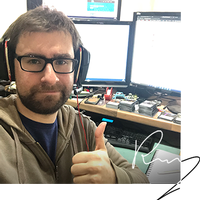Read our latest post on the best social media channels for your small online business here.
It’s almost impossible to be online and avoid the ever-growing reach of social media platforms. From what started as sites where you could talk about your day, social media sites now become a major way we communicate with the outside world and see what everyone is up to. Because of this, more and more businesses are integrating website design and social media services to showcase themselves and advertise their products and services.
Where and what
As with other services, each social media site tends to cater for particular audiences, while there is a lot of overlap, each site has its origins as a core element of how they function today. Where there are many different social media platforms now, the main ones are;
Facebook – Arguably the king of social media platforms. From community interest pages to its own marketplace and chat system, Facebook covers all the bases.
Twitter – The place for short bursts of information. Great for a quick update but limited to 280 characters. Many people use Twitter to directly communicate with businesses.
Instagram – Focused around pictures. The ideal place to showcase visual services such as hair and beauty treatments or perhaps a recent construction job.
LinkedIn – Much more designed for business users than the other sites. A tool used for business networking rather than to discuss day to day home life.
How do I use them?
Every person and every business is different. There’s no right or wrong way to use social media, the most important thing is to give it a go and see how your audiences react. But here are some simple things to keep in mind;
What is the purpose of my post?
When creating a post, take a moment to think about what you want it to do, and what you want your readers to do. For a café that’s opening early this weekend, a simple Facebook post or Tweet would be great, while if your online shop has a new product, just talking about the item is fine, but how will your readers be able to find out more and make a purchase? If it’s relevant, including a link to your website would be much more beneficial rather than a paragraph of a post that most people would skim over or only providing a small amount of information, but no way to follow up and interact with you.
Who is the audience of my post?
Now we have an idea of what we want this post to say and do, who are we expecting to see this post? Different social media platforms may have different audiences, and different audiences may need a different approach or tone. Perhaps a humorous video of what you and your team did last week may suit Facebook more than LinkedIn for instance? If you are using a range of different social media sites, keep in mind which posts appear on which platforms.
What do I need to be wary of?
As social media is an outlet for the world to see, keep in mind that this is your business speaking to the internet as a whole. Remember that your posts are speaking in the voice of your business, and that any poorly written messages that you later regret, could be very tricky to remove. If possible, keep your business and personal accounts separate, firstly to reduce the chance of making a post that may be business-like, but also because we all need to detach from work from time to time.
Remember that as social media is a quick way of interacting with your visitors, it’s also a way your customers will expect to quickly be able to get in touch with you. While this can of course be great if its people getting in touch about your services, it can be difficult if you are busy, and can be irritating for your customers if they are left waiting with questions or complaints.
Do I still need a website?
There is no reason that social media and a website should be mutually exclusive. They can both have different purposes and reach different audiences. While social media pages can grow on their respective platforms, a website can rely on search engine optimisation in order to grow in Google, which is where the vast majority of people would look first for products or services. The other key thing to keep in mind is that website design gives you your own bubble on the internet that follows the look and style of your business. Unlike social media sites you’re not restricted by the structure and colours that are dictated, and are not pigeonholed alongside your competitors’ profiles. A website can be a place to point your social media posts too for your visitors to find more information, and you could bring in feeds directly onto the site so, for example, your Instagram posts are displayed as a gallery on your page showing your recent work. Want to have a chat with our website specialists about how a site could supplement your social media profiles? Feel free to get in touch below;
Why do thousands of
business owners
trust DotGO?
It starts with just one click

